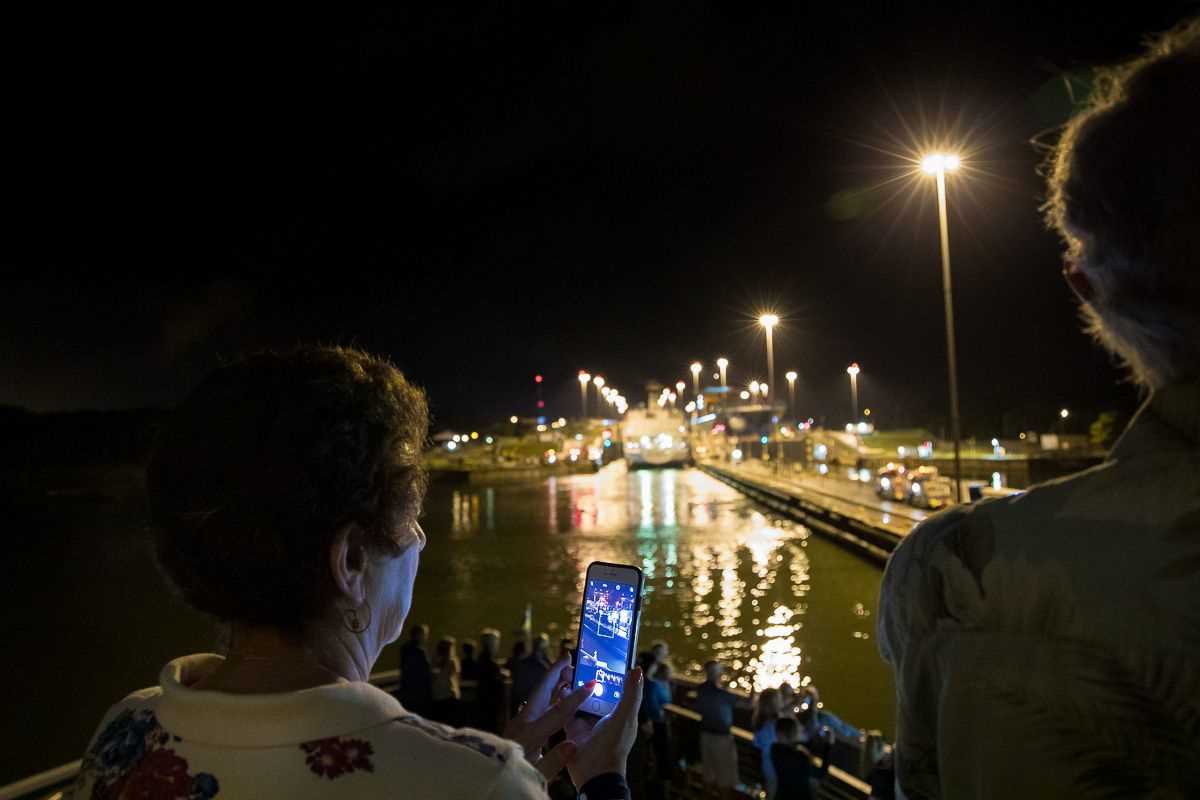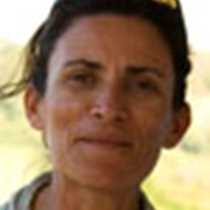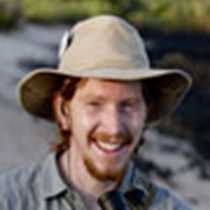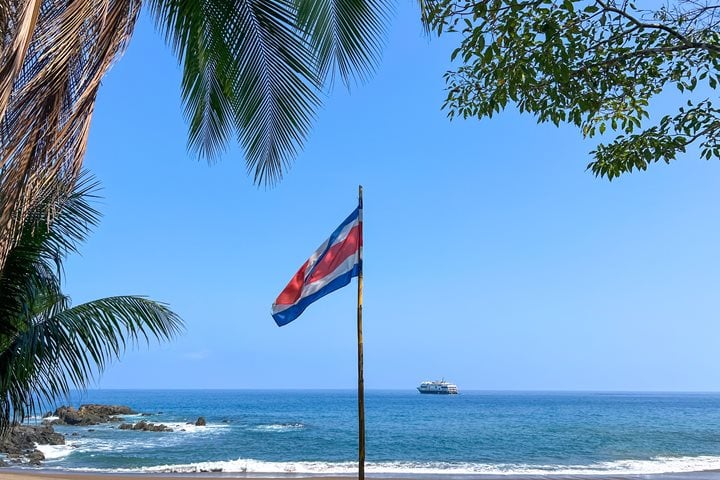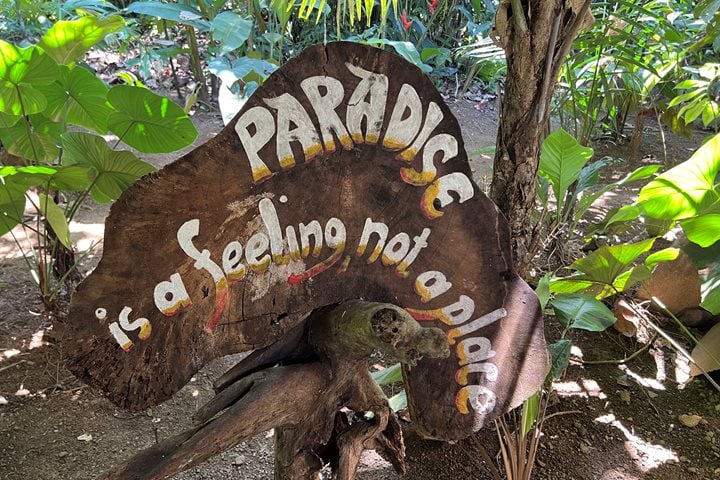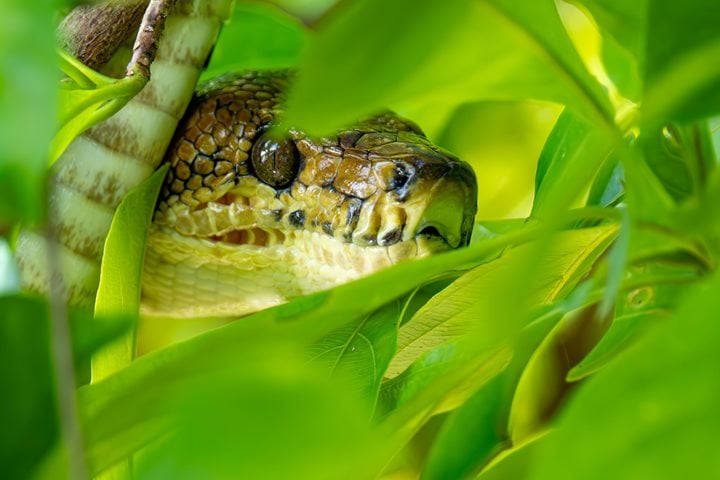We began our adventure last night when we got on board National Geographic Quest, and almost immediately the Panama Canal Pilot repositioned our vessel from the port in Colon to the entrance of the Caribbean set of locks, the Gatun Locks. Three chambers filled with 52 million gallons of water lifted us 85 feet into the Gatun Lake. Crossing the canal at twilight hours is a wonderful thing; the lights are dim, the temperature has dropped ten degrees and more movement and workers than during the day.
The first thing we see are the very unexpected rowboats, with two men, approach the ship to toss the lines that will connect the ship to the "mules" that will tug and guide the ship through the lock. Other means of throwing the lines have been tried, but this has proven to be the way that works best. With a successful first night canal crossing, we went to bed tired but satisfied.
We woke up today in front of the Barro Colorado Island (BCI) Research facilities in the midst of the Gatun Lake. Barro Colorado is one of the most important and productive tropical research stations in the world. Scientific papers with information on plant phenology, animal behavior, tropical ecology, microscopic life, soil life, molecular biology, anthropology, archaeology and many other branches of science get published almost every day for everyone’s knowledge. We were lucky to get the chance to walk the trails or explore the edges of the island via Zodiac looking for wildlife. We were very much surprised by the high amount of wildlife, some of which included three varieties of monkey, agoutis, coatis, an armadillo, sac-winged bats, a plumbeous kite, and two species of trogons, to mention just a few.
We came back on board for a well-deserved lunch and rest. The third pilot of our canal crossing came on board to take us through the last section of our voyage through the path between the seas. Navigating through the Culebra or Gaillard Cut, the Pedro Miguel Locks, the Miraflores Lake, the Miraflores Locks and under the Bridge of the Americas we completed our transit into the vast Pacific Ocean.

